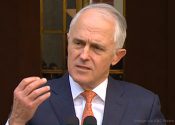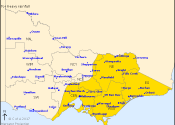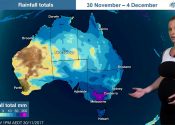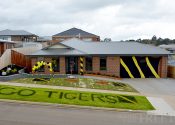![]() GIPPSLAND // MENTAL health indicators and service usage patterns indicate the burden of mental illness on individuals and psychological health services in Gippsland is extremely high.
GIPPSLAND // MENTAL health indicators and service usage patterns indicate the burden of mental illness on individuals and psychological health services in Gippsland is extremely high.
A recent report by the former Gippsland Medicare Local, the Summary Needs Assessment, revealed 13 per cent of people in the region experience a high or very high degree of psychological distress.
According to the report, people living in Gippsland use drug and alcohol related mental health services at a much higher rate than the state average and stigma associated with mental health is still a major barrier to proper treatment.
ADVERTISEMENT
According to Beth Fogerty, local regional manager for support group the Mental Illness Fellowship, the prevalence and severity of mental health-related issues shows the need for ongoing discussion.
“Having an open and honest discussion about mental health takes away the stigma and shows those affected that there is nothing to be ashamed of,” Ms Fogerty told the Warragul & Baw Baw Citizen.
“Discussing mental health [publicly] encourages people who might need support and assistance to open up and ask for help.”
The MI Fellowship is a non-profit organisation which supports people with mental illness, as well as their families and friends, through recovery, education and advocacy programs.
MI Victoria has several centres in Gippsland, including one in Warragul at 78 Albert Street.
“We work on transitioning individuals affected by mental illness back into the community, starting from day one,” Ms Fogerty said.
“We discuss transition plans, review goals… and review how and where [clients] can gain support from.
“Mental health services work closely with each other. It’s really important to look at what we need and how to address certain challenges.”
One of several approaches the institute takes to education and support is the facilitation of presentations by clients who have experienced mental illness first-hand.
ADVERTISEMENT
“We have a strong presence of peer workers and educators who are able to talk from lived experience, which provides others with hope and insight,” Ms Fogerty said.
“Seeing someone [who] recovered talking about their own experience gives hope, inspiration [and reinforces the notion] that recovery is possible.
“We also do presentations for lots of community based organisations. Our record is 20 over a couple of months.”
Doorway is another of MI Fellowship Gippsland’s key programs. It is a collaboration with Latrobe Regional Hospital to support homeless people with mental illness.
“Doorway supports people with mental illness who are homeless and their entrance into the rental market,” Ms Fogerty said.
“We [also] work with real estate agents and Work Solutions Gippsland.”
For someone who has a loved one with mental illness, it can be difficult to provide the support they truly need. Information from support service Mind Health Connect suggests it is crucial for an individual to be there for their loved one to encourage them to seek help from a medical professional.
Validation of what a person is going through, even by those without experience of mental illness, can be extremely helpful. Knowing what to say to someone experiencing mental illness can however be difficult, and unhelpful or dismissive comments can be damaging.
If you know someone who is experiencing mental illness there are several things you can do. Firstly, read evidence-based information on identifying mental health issues. You may wish to expresss your concerns to that person in order to start a conversation, and once talking you can be encouraging and offer practical support.
Ms Fogerty said the wider community needed greater education about mental health.
“We need to work on how we productively inform the community about mental health,” she said.
“Mental health issues don’t discriminate. One in five Australians will experience mental illness at some stage in their lives. We need to highlight the matter and not put those affected in a certain box.”
ADVERTISEMENT
If you or someone you know requires help with mental illness you can contact the MI Fellowship on 8486 4222. You can also contact beyondblue on 1300 22 4636 or visit beyondblue.org.au or, for youth-specific services, call headspace on 1800 650 890 or visit headspace.org.au.






















